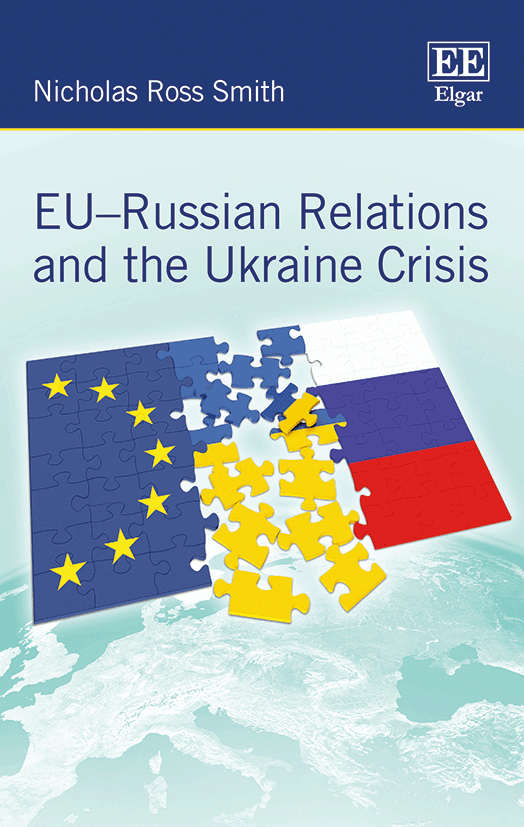 Trump forsaking NATO would be a win for Putin, but it might also be a win for Eurasia too. Nicholas Ross Smith examines the contemporary Ukrainian crisis and its historical roots.
Trump forsaking NATO would be a win for Putin, but it might also be a win for Eurasia too. Nicholas Ross Smith examines the contemporary Ukrainian crisis and its historical roots.
Much of the commentary in the wake of Donald Trump’s victory in the US presidential election is that Vladimir Putin is the ultimate winner because of Trump’s desire to not only thaw relations with Russia but also consider adjusting the United States’ role in NATO. For most, such outcomes are the worst case scenario for Eurasia (broadly defined) as it would remove significant deterrence against Russia, particularly in the Baltics.
As I examine in more detail in EU-Russian Relations and the Ukraine Crisis, broadly speaking, Eurasia’s current insecurity is not merely the product of Russia’s increasingly belligerent policies over the past decade, although that is undoubtedly a source of anxiety for the countries which are closest to Russia. Rather, Eurasian insecurity predominately stems from the increasingly competitive security preferences the West and Russia have which has created a geopolitically charged regional security complex.
In 1989 the West and the Soviet Union tentatively agreed a post-Cold War security architecture for Eurasia which balanced power on the continent; a situation where both sides agreed not to pursue any hegemonic goals. However, when the Soviet Union collapsed in 1991, this security agreement was abandoned and the West – through its two main European institutions, the EU and NATO – asserted a normative, economic and security hegemony over Eurasia, at the expense of the largest country, Russia.
In the early years during Russia’s initial post-Soviet malaise, it was untenable that they could challenge the West’s Eurasian domination which helps explain why the EU and NATO were able to expand without much resistance from the Kremlin. However, when Putin came to power in 2000, Russia gradually rebounded which, over time, resulted in a more assertive foreign policy, particularly with regards its “near abroad” – the former territories of the Soviet Union on Russia’s periphery.
With Russia’s resurgence as a “Eurasian great power”, Eurasia became a bipolar setting again in the mid-to-late 2000s, but given the differences in opinion of how European security should be managed, it was an unbalanced bipolar system. This kind of system is naturally unstable as it predisposes insecurity and competition between the two poles. In the Eurasian context, this insecurity has centred on the shared neighbourhood between the West and Russia in Eastern Europe (Belarus, Moldova and Ukraine) and to a lesser extent, the Southern Caucasus (Armenia, Azerbaijan and Georgia).
Judging by Russia’s interventions in Georgia in 2008 and Ukraine since 2014, it has felt insecure in this unbalanced bipolar setting as both interventions can be said to be, in part, responses to the perceived threat of the West in expanding its influence closer to Moscow. NATO, in particular, has been a major source of anxiety for Russia, as it is seen, rightly or wrong, as an institution which no longer has a purpose other than antagonising Russia.
Despite Russia’s manifest uneasiness at the state of Eurasian security, the West has not been that open to renegotiating a security architecture which explicitly recognised Russia’s place as a pole within this regional setting. Underpinned by the globe’s undisputed preeminent power, the United States, the EU and NATO continued to push their exclusive security agenda which essentially relegates Russia to a secondary component of Eurasia’s security architecture.
Many foresee the potential degeneration of NATO as giving Putin a licence to march eastwards at his will. Such a scenario rests on a belief that without a strong NATO, the remaining like-minded European countries will not be able to create a credible tight-knit security community and that Putin has the power and the desire to undertake such action.
However, a more plausible scenario is that the diminishment of NATO would lead to the European powers and Russia agreeing on a new security architecture like the one that was initially agreed in 1989: a balance of power which recognises the bipolar nature of Eurasia.
Indeed, if Europe and Russia were to agree to such an architecture for Eurasian security, it would mean that Europe would essentially have to give up its Europeanization project; its aspiration to be the (normative) hegemon of Eurasia. Consequently, Europe would have to walk away from its foreign policy goals for Ukraine and the broader shared neighbourhood and agree that these areas become buffer regions between Russia and Europe.
The West has failed miserably to assert itself against Russian aggression.
Given the suffering of Ukraine, mainly due to Russian intervention – although Ukraine’s political elite and the West’s policymakers are also culpable to a degree – such a decision is difficult to advocate right now. However, as Ukrainians well know, the West has failed miserably to assert itself against Russian aggression, failing to deter Russia from doing as she pleases in Crimea and the Donbass region.
While agreeing a balanced bipolar architecture would be an ostensible capitulation of sorts for Europe, it would, on the other hand, remove the insecurities blighting the Europe-Russia relationship and help realign it along the more positive-sum trade and energy relationships which, once upon a time, were robust and mutually beneficial for Europe and Russia. Furthermore, although Ukraine, and the other shared neighbourhood states, would be rendered “Finlandised” buffer states with neutered foreign policies, the stability would be a welcome development from what has been a challenging few years stuck between the gravitational pull of the West and Russia.
Nicholas Ross Smith is Postdoctoral fellow, National Centre for Research on Europe, University of Canterbury, New Zealand

EU–Russian Relations and the Ukraine Crisis is available now


Leave a Reply